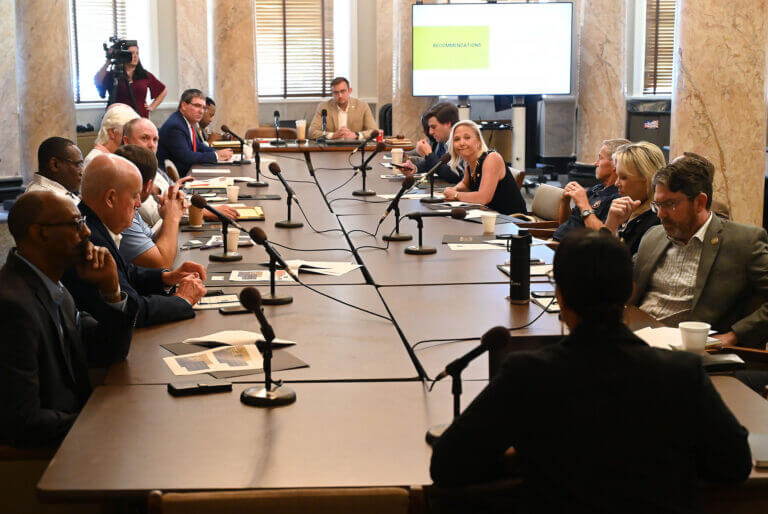
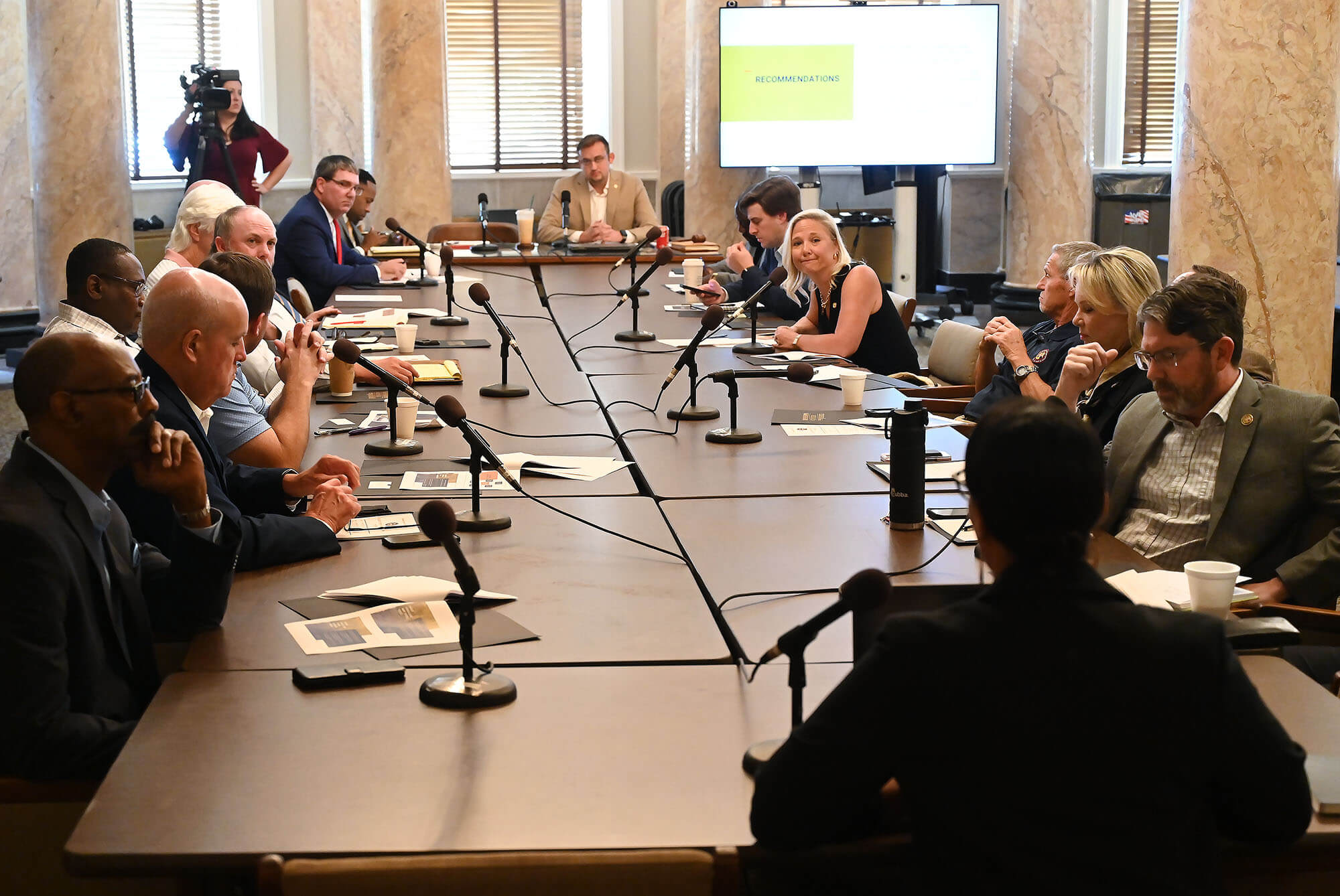
Lawmakers selected to study school choice proposals in Mississippi made good Thursday on their promise to hear from both sides of the debate.
What resulted was a dizzying day of conflicting arguments, punctuated by a lunch break that divided the differences in opinion.
In the morning, a school superintendent from the Gulf Coast and an education policy expert argued against expanding such programs in Mississippi, citing education’s worth as a public good.
But the afternoon speakers — a school choice advocate from Florida and an education researcher — instead referred to the education system as a business and centered their argument around the superiority of private schools.
It was the second meeting of the House Education Freedom select committee, which was created by Republican House Speaker Jason White to weigh pros and cons of a robust school choice program. So far, neither of the select committee’s meetings has been streamed online.
“Education freedom,” the moniker that Republicans prefer to describe school choice ideas, refers to a myriad of policies that either disburse money to families to pay for education services, including private school tuition, or allow families to move their children to different schools, regardless of type or location. The issue has gained traction under the Trump administration, and White and other state leaders have repeatedly indicated their support for the issue, which is expected to headline the legislative session that starts in January.
Kim Wiley, education policy analyst at the Mississippi Center for Justice, kicked off the meeting with a warning.
Over the course of an hour, she reminded legislators of the academic gains that have landed the state in a national spotlight and cautioned against turning the “Mississippi Miracle” into a “Mississippi Mistake.”
Around 55,000 students in Mississippi attend private schools, while another 22,000 are homeschooled, she said. One of the options state leaders are exploring — education savings accounts or ESAs — would award families vouchers in the amount of their state-funded student allocation to spend on their education however they see fit. Wiley said it could potentially bankrupt the state, costing upward of $500 million.
In other states, voucher programs have been grossly underestimated. Wiley used Arizona as an example, which is common among school choice opponents. The state expanded the program quickly and without many guardrails, resulting in huge, unexpected costs. Wiley said if something similar is passed in Mississippi, it would come at the detriment of funding to other important issues such as public safety, health care and rural schools.
With federal pandemic relief funding ending and the elimination of the state income tax, Wiley said expanding school choice is a brewing “fiscal storm.”
She offered recommendations that — if school choice were to be expanded — she said would “lessen the harmful impact,” including establishing income limits for eligibility and requiring that voucher applicants have previously attended a public school.
Wiley was grilled by Republican representatives who asked her for examples of neighboring states where expanding school choice was “disastrous,” as she put it. While it’s true that Mississippi is surrounded by states with some version of universal school choice, many of those programs are in their first year, so it’s hard to say what the effects have been.
Rep. Jansen Owen, a Republican from Poplarville who co-chairs the select committee, told Wiley, “We’re not doing what Arizona did. Let’s get that out of the way.”
Rep. Gregory Holloway, a Democrat from Hazlehurst, asked Wiley who was behind the recent school choice push.
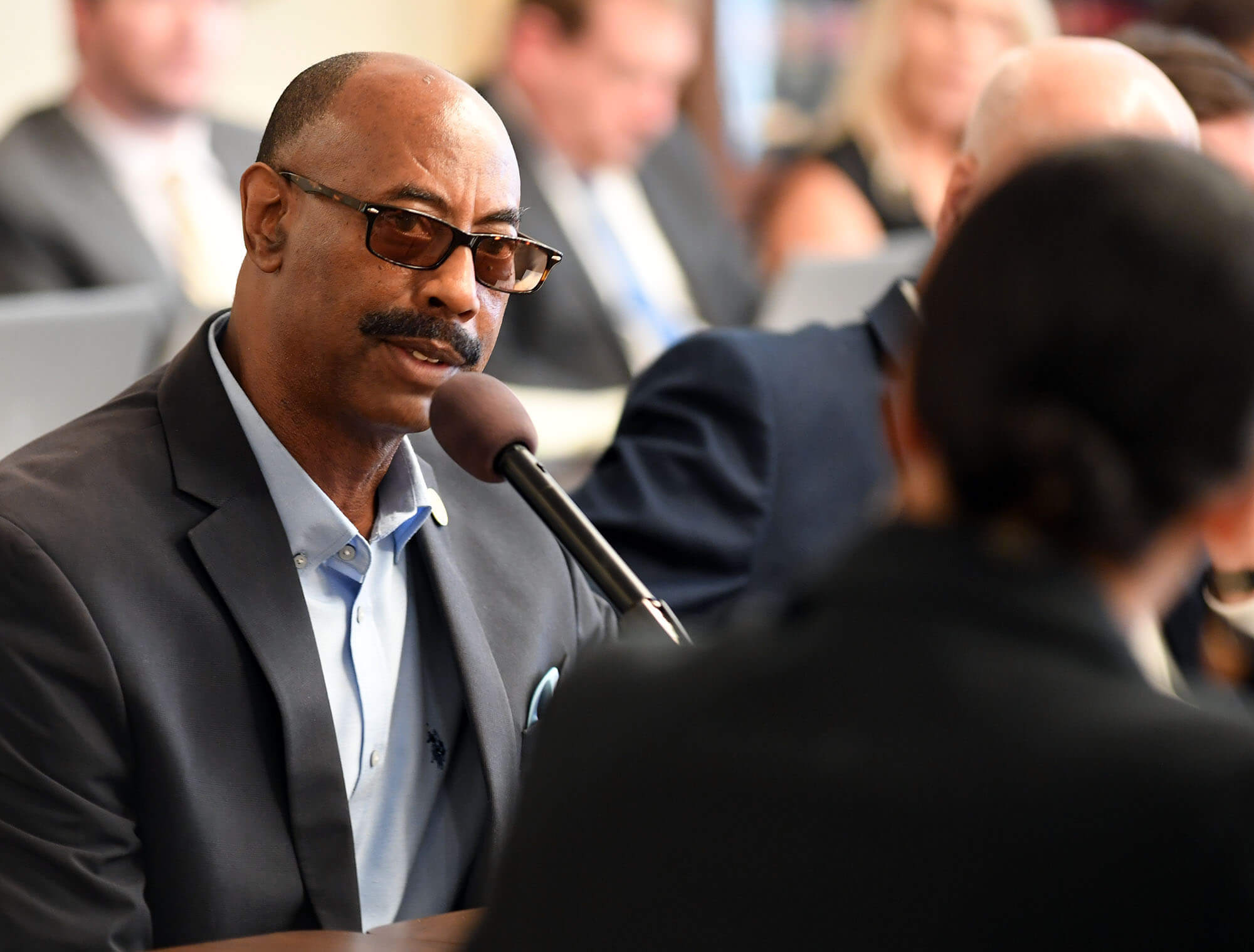
“Defunding public schools has become a priority for some,” she responded. “I think that there are those private interests who realize this is a cash cow. This is a way that they can sort of game the system.”
Owen said later Thursday that he was disturbed by her assertion.
Biloxi School District Superintendent Marcus Boudreaux followed Wiley with a passionate argument against expanding school choice and one that firmly centered schools as the bedrock of communities.
His presentation against expanding school choice policies ran the gamut, arguing they would worsen the teacher shortage and lead to school closures.
He said there was no demand for the policy in his community, where the public district is consistently top-rated. Boudreaux said expanding school choice would create two separate publicly-funded education systems, one without the same level of accountability as the other.
Boudreaux suggested he was supportive of an open enrollment program that would allow students to transfer between public school districts. But he acknowledged that letting students leave schools where they live would worsen the financial and academic disparities between districts, creating “have” districts and “have nots” as money follows students.
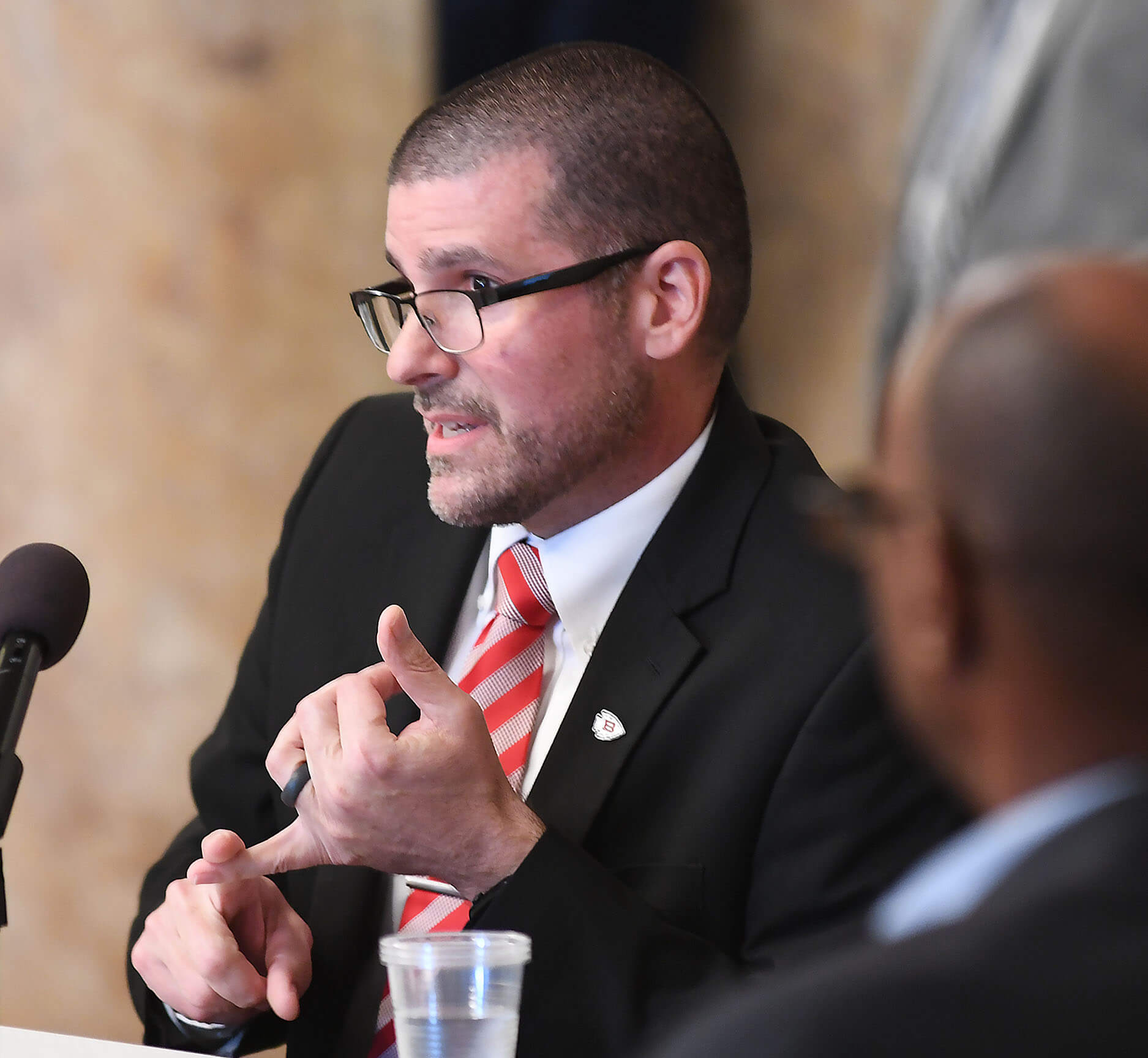
“I honestly see it as a return to segregation,” he said. “Not necessarily racial segregation — economic segregation.”
When Rep. Trey Lamar, a powerful Republican lawmaker from Senatobia, asked Boudreaux what he would say to children in Greenwood who have limited options outside of their struggling school district, unlike in Biloxi, Boudreaux’s response was succinct.
“I don’t say it to the children,” he said. “I say it to their state. It’s time to invest in public education everywhere.”
Boudreaux said earlier in his presentation: “All Mississippi children deserve the best.”
After a lunch break, legislators heard from Erika Donalds, a school choice activist and wife of Florida gubernatorial candidate Byron Donalds.
She described her sons’ different experiences in public school, which eventually led her to enrolling one in a private school despite struggling to pay his tuition. Donalds later helped found a network of charter schools and campaigned her way onto the local school board, which is where she realized the public school system wasn’t responsive to parents, she said.
Interrupted by frequent applause from supporters, Donalds described classrooms where students were spending the majority of their days being taught by teachers whose values didn’t align with those of the students’ families. She cited polls from pro-school choice organizations that showed parental support for the policy, and added that education was the only “industry” that allowed monopolies in the form of the public school system.
Donalds also had a warning for lawmakers: If school choice isn’t expanded, companies boasting innovative education programs and technologies would be less inclined to come to Mississippi.
“Put these decisions in the hands of parents,” she said. “Give them the education freedom that they deserve, and watch the economy of education in Mississippi flourish.”
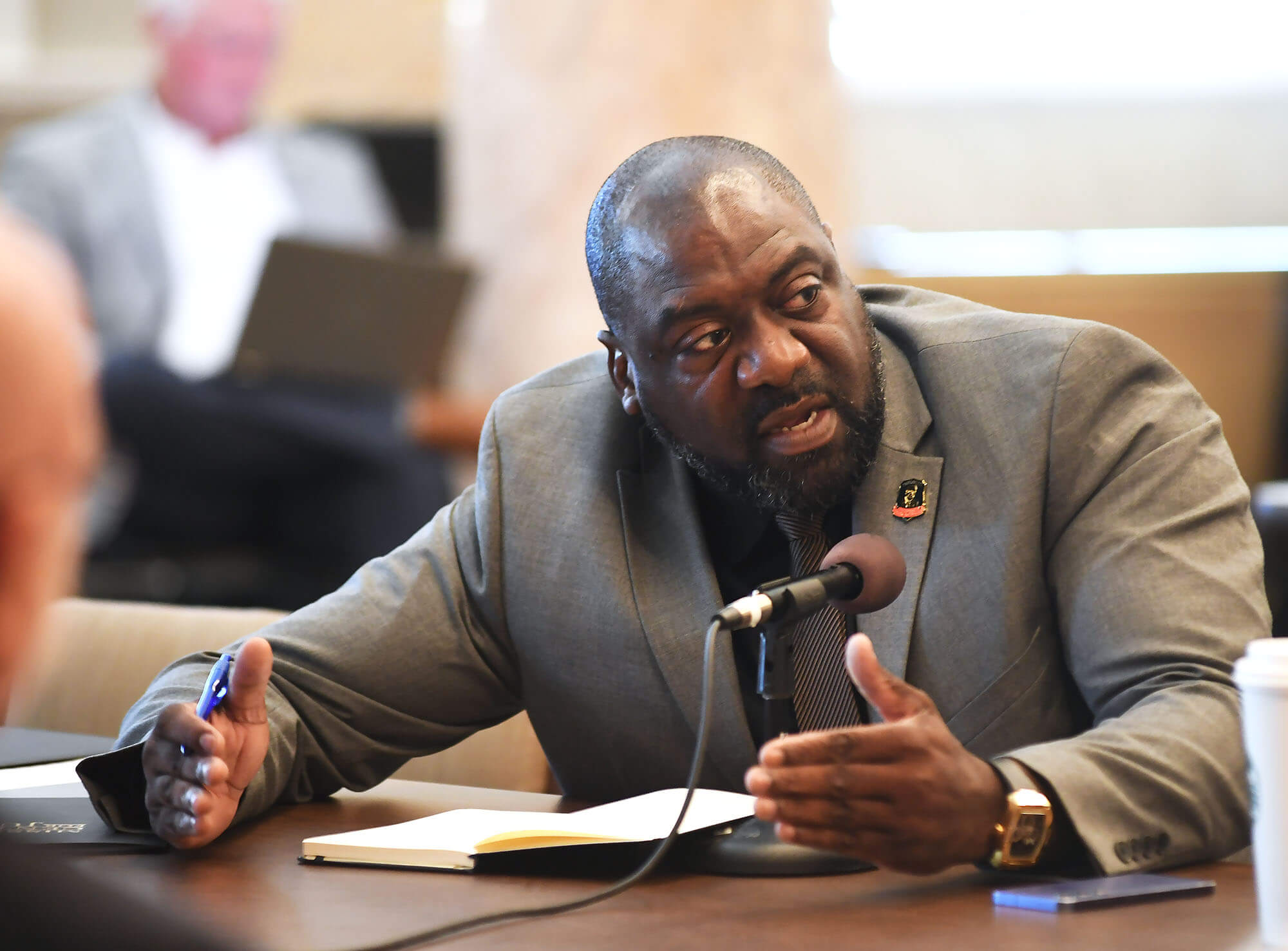
House Education Committee Chairman Rob Roberson, a Republican from Starkville, asked Donalds if expanding school choice would harm school districts — a fear of parents who have reached out to him. She responded that high-performing, wealthy districts tend to “beef up,” while less-resourced districts are the ones that are hurt.
Responding to Wiley’s earlier claim, Donalds said she didn’t know anyone — charter school founders, private school leaders or advocacy group staffers — that was “in it for the money.”
“Running schools is a difficult way to do that,” Donalds said, despite describing herself as an “education entrepreneur.” It was reported this summer by a news outlet, the Florida Bulldog, that Donalds’ education companies have garnered millions in charter school contracts.
Donalds emphasized to leaders that their decision to expand school choice would be supported by President Donald Trump, echoing a sentiment repeatedly shared by federal education leaders at the first Education Freedom select committee meeting in August.
Thursday’s meeting concluded with Patrick Wolf, a researcher who serves as the Endowed Chair in School Choice in the University of Arkansas Department of Education Reform. He presented a litany of studies — many authored himself — that connected enrollment in school choice programs with higher rates of high school and college diplomas.
It’s not clear if or when the House committee will meet again.
- Former Greenwood police officer pleads guilty to federal drug trafficking charges - February 27, 2026
- UMMC officials say normal operations will resume Monday after cyberattack - February 27, 2026
- Hinds County public defender: Office needs additional funding to avert constitutional crisis - February 27, 2026